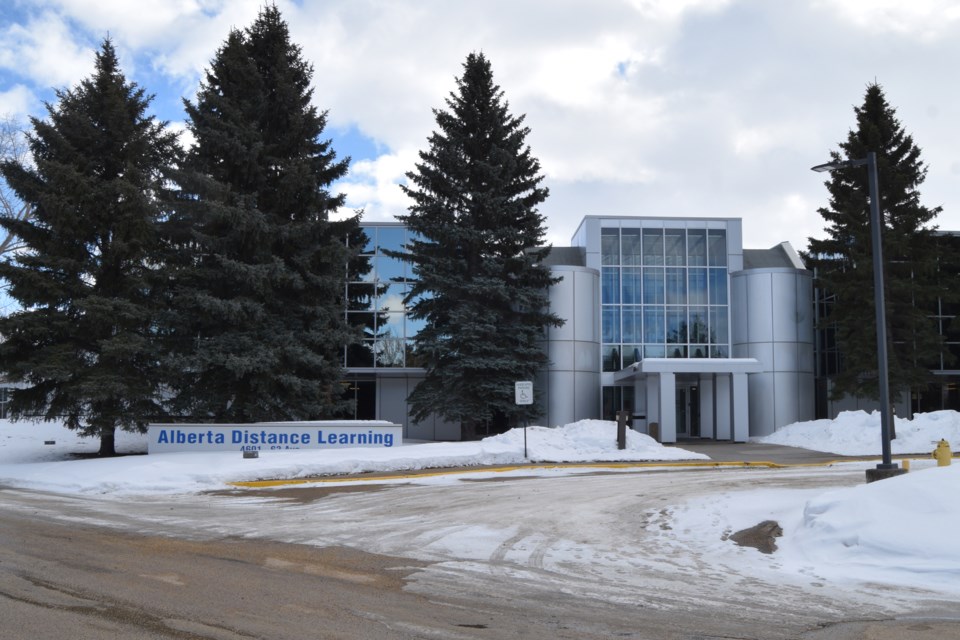BARRHEAD - The future of the Alberta Distance Learning Centre (ADLC) has been thrown into doubt following an announcement that its provincial funding may be cut entirely in the next three years.
The Pembina Hills School Division operates the ADLC as part of a service agreement with the provincial government since 1997. The superintendent of Pembina Hills is authorized by the school board to act as the chief executive officer of ADLC.
Literally hundreds of partner schools across Alberta utilize courses offered through the ADLC, and in some cases, it is their only means of accessing certain course content.
On Feb. 28, Pembina Hills Supt. David Garbutt posted an update to the ADLC’s website stating they had had received notice from Deputy Minister of Education Andre Corbould that the service agreement between the school division and the province to operate the ADLC would be concluded in two years.
Furthermore, Garbutt said they would receive $14 million in 2020-2021 and $7 million in 2021-2022 from Alberta Education.
For reference, the 2019-2020 budget of the Alberta Distance Learning Centre, which the Pembina Hills board passed back in June, totals $18.535 million in revenue and expenses.
Of that revenue, approximately $17.015 million was budgeted to come directly from Alberta Education as part of Pembina Hills’ service agreement with the province.
However, this amount would have been reduced due to the fact that the ADLC finished the 2018-2019 school year with a $2.581 million surplus. As a result, Alberta Education’s contribution towards the ADLC would be reduced to match the surplus, as any excess funds must be returned to the province.
Garbutt said that they have no further information at this time about the province’s plans regarding the ADLC, but are hoping to meet with representatives of Alberta Education in the very near future.
“In the meantime, we will continue our commitment of providing instruction to your students. Your teachers can also continue to use ADLC resources through Teacher Support,” Garbutt said.
In an e-mail, Pembina Hills board chair Jennifer Tuininga said Garbutt's update had also been shared with all Pembina Hills staff Feb. 28. She added that Pembina Hills is working with Alberta Education and Education Minister Adriana LaGrange around the matter, and they had requested a meeting to occur as soon as possible.
Otherwise, Tuininga said she has no further details to provide until they learn more.
The Barrhead Leader reached out to Alberta Education on Monday, March 2 for further clarification regarding the changes to ADLC's funding. Colin Aitchison, press secretary for the Minister of Education, sent back an e-mail stating the following:
"The changes that were introduced in Budget 2020 will provide equitable funding to all distance learning providers in Alberta. The Government will work with Pembina Hills School Division over a two-year transition period to ensure as minimal disruption as possible for the Barrhead community and school divisions accessing their services across Alberta. At this point, it is too early to comment on any potential staffing changes."
Aitchison added that back in 1997, the ADLC was the only distance education provider in Alberta. (The ADLC existed prior to that year, but that was the start of the service agreement between the province and Pembina Hills.) Today, 32 school authorities are offering distance education to students across the province.
He also said that ADLC was the only distance education provider to receive dedicated block funding, and the changes introduced in the budget now put all of the providers on equal footing, funding them all on an equitable, per-credit basis.



